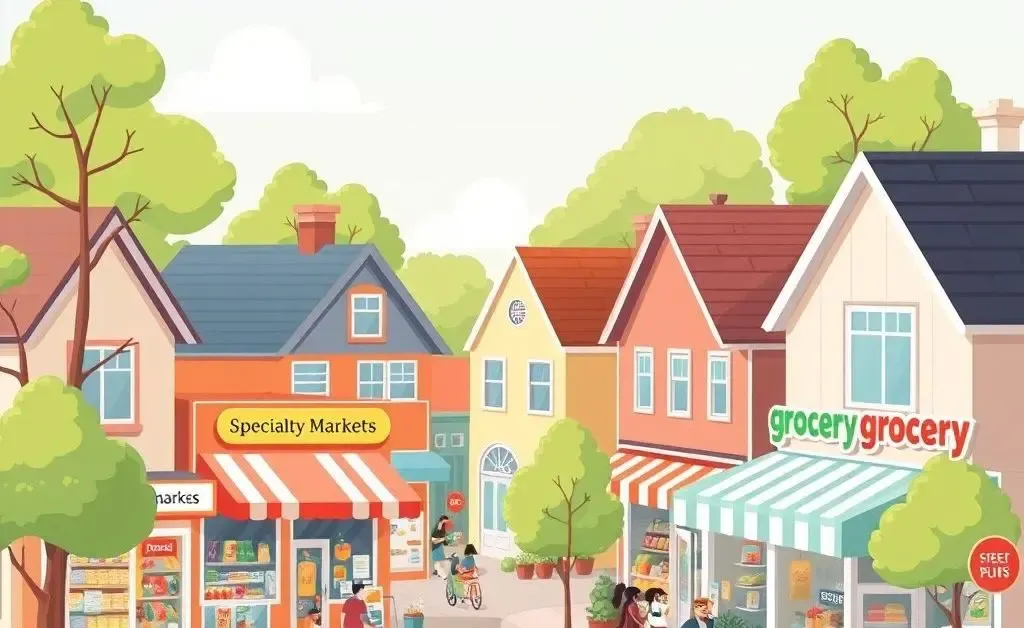The Supermarket Proximity Effect: How Your Grocery Choice Impacts House Prices
Discover how living near a supermarket influences property values. Intrigued? Let's explore this dynamic!

Have you ever wondered how the proximity of a supermarket might impact the value of a house? Picture this: a gorgeous house on Oak Street just went up for sale, and it's got more than one selling point—just a five-minute walk from your favorite grocery store. Let's unpack how living near specific supermarkets could affect your home's value and livability.
The Curious Case of Supermarket Proximity
Believe it or not, supermarkets do more than just keep your pantry stocked. They can also influence local property values. Picture a neighborhood that's moments away from an upscale supermarket. Often, these areas are accompanied by rising house prices. But what about the accessible, no-frills grocery stores? Well, the effect can be quite different, but not always in a negative way.

Why Does a Supermarket Matter?
Supermarkets are a crucial part of our weekly routine. They add convenience and can turn a decent area into a prime location. Here's why:
- Convenience: Reduces travel time for daily errands.
- Amenity Demand: Communities value an enriching shopping experience.
- Price Stability: Certain supermarkets are associated with areas of stable or rising property prices.
No two supermarkets are the same, and their presence can tell a story about a neighborhood's character and economic vibrancy.
The Waitrose vs. Asda Paradigm
Let's delve into a common phenomenon often discussed in housing circles—the 'Waitrose Effect' vs. 'Asda Effect.' Traditionally, it’s believed that having a high-end supermarket, like Waitrose, signals a more affluent area. Research suggests homes near these high-end grocery stores are priced higher on average. But don't discount the budget-friendly options! Stores like Asda can also contribute positively by enhancing accessibility for diverse demographics, fostering a vibrant and inclusive community.

A Tale of Two House Hunters
Imagine Sarah and Tom, two prospective home buyers with different priorities. Sarah is set on finding a home near a Whole Foods for its organic options. On the other hand, Tom values community and convenience over trendy options, looking for houses near a Tesco. Both scenarios illustrate how supermarkets reflect personal priorities as much as they affect house prices.
So the next time you drive past a for-sale sign near your local grocery store, think about what the supermarket might mean beyond just groceries. It might just offer a slice of the neighborhood’s soul.

What Does the Future Hold?
As cities grow and develop, the supermarket dynamics will continue to shape housing markets and community vibes. Keen to learn more about how changing shopping habits impact neighborhoods? Let's keep the conversation going! Are you more drawn to high-end or budget-friendly supermarkets in your area, and how does it influence where you choose to live?




